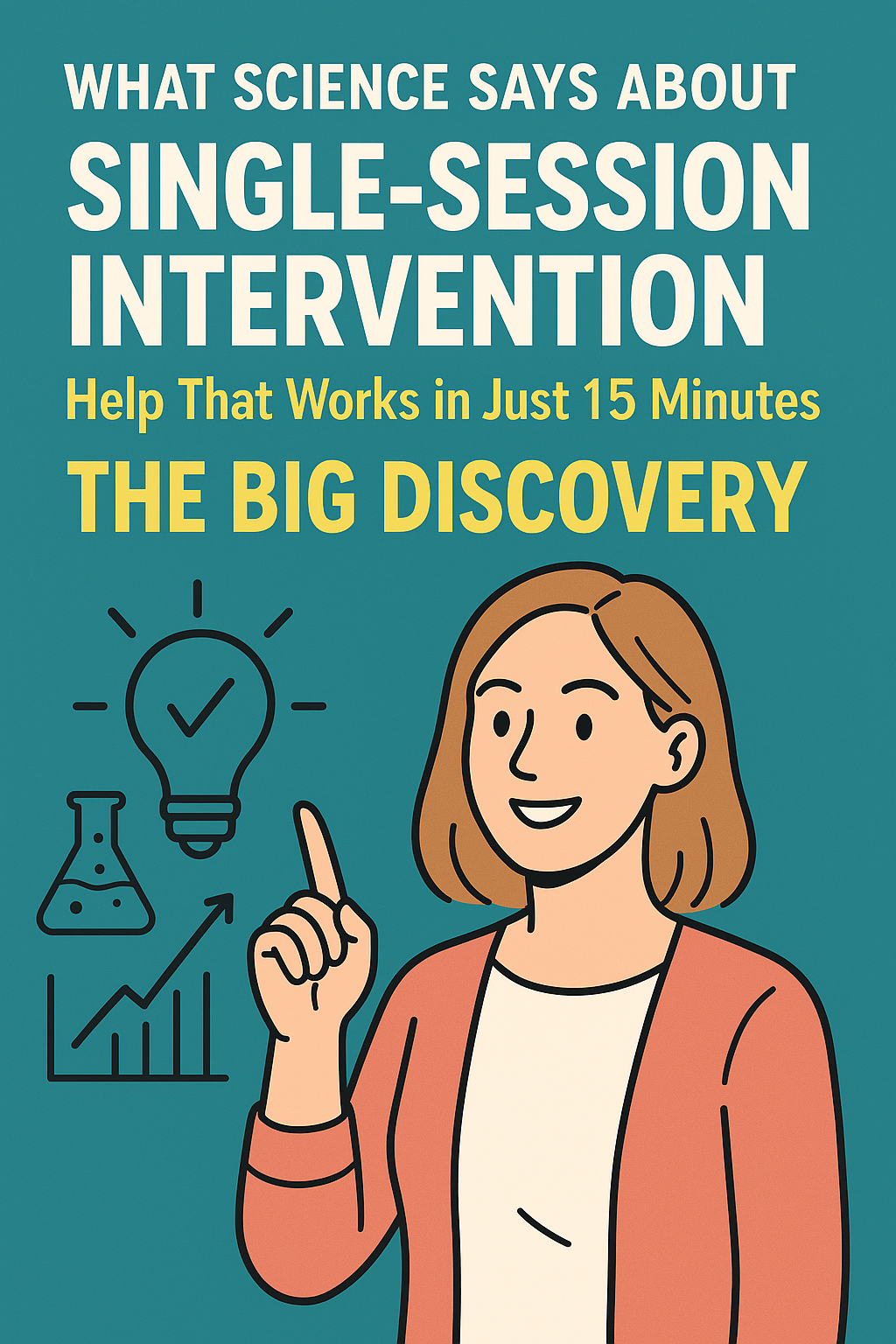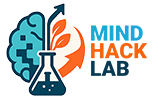What Science Says About Single-Session Intervention

Transform Your Mind in 30 Minutes
Science-backed therapy that works in a single session
Help That Works in Just 30 Minutes
The Big Discovery
Scientists have proven that you can feel better after just one focused online therapy session. You don't always need months of therapy. Sometimes 30 minutes of the right help creates real change.
% of people feel better after a single session
Key Finding
8 out of 10 people feel better after a single session for problems like:
- Anxiety and worry
- Feeling down or depressed
- Relationship problems
- Stress and overwhelm
How It Works: Three Simple Ideas
- Your brain isn't stuck the way it is
- When you believe you can change, your brain actually rewires itself
- One study with 12,000 people proved this works in just 20-30 minutes (Yeager et al., 2019)
- Just because you think something doesn't make it true
- You can learn to spot unhelpful thoughts
- You can create more balanced, helpful thoughts
- This skill takes minutes to learn, not months
- Trying to push away bad feelings often makes them worse
- It's like holding a beach ball underwater - exhausting!
- Instead: Let feelings be there while you do what matters to you
- You can feel anxious AND still talk to that friend.
The Simple Formula That Changes Everything
If-Then Planning: Make a simple plan for tough moments
IF I feel anxious,
THEN I'll take 3 deep breaths
IF I think "I'm not good enough,"
THEN I'll name one thing I did well today
IF I want to avoid something,
THEN I'll do the smallest version possible
Research shows this simple trick makes you 3 times more likely to follow through.
Why Brief Help Works So Well
🔹 Your brain learns fast when you're ready to change
🔹 Small steps create momentum - like pushing a swing
🔹 You already have wisdom - you just need help finding it
🔹 Action beats overthinking every time
What Happens in a 30-Minute Session
"You're not alone"
- Learn that most people face similar struggles
- Feel normal, not broken
"You already know something that helps"
- Remember what's worked before, even a little
- Build on your own wisdom
"Here's what helped someone like you"
- Hear how someone else handled this
- Get one new tool to try
"Make your personal plan"
- Create your own If-Then statement
- Practice it once
- Leave knowing exactly what to do
The Tools That Help Most
1. The 5-4-3-2-1 Grounding
(When overwhelmed)
- 5 things you see
- 4 things you can touch
- 3 things you hear
- 2 things you smell
- 1 thing you taste
2. The Thought Check
(When mind spirals)
- "What am I thinking?"
- "Is this thought helping me?"
- "What would I tell a friend?"
3. The Values Question
(When stuck)
- "What matters most to me?"
- "What's one tiny step toward that?"
- "Can I take that step even if I feel bad?"
Why This Matters Now
Traditional therapy is great but:
- Expensive (average $100-200 per session)
- Hard to access (long waitlists)
- Time-consuming (weekly for months)
- Only reaches 3% of people who need help
Single-session help:
- Often free or low-cost
- Available online 24/7
- Takes 20-30 minutes
- Can reach everyone
15 minutes
Willingness to try
One If-Then plan
Remember This
🔹 You're not broken - you're human dealing with hard stuff
🔹 Small changes add up - like saving pennies becomes dollars
🔹 Feelings aren't facts - they're just weather passing through
🔹 You can feel bad AND do good - both can be true
The Bottom Line
Science proves you can create real change in one focused session. Not because your problems don't matter, but because you have more power than you think.
The help you need isn't months away. It's available right now, in less time than it takes to watch a TV show.
Your better day starts with one small step. Why not take it today?
Based on research from Northwestern University, analyzing over 150 studies with 70,000+ participants. These methods come from Cognitive Behavioral Therapy (CBT), Acceptance and Commitment Therapy (ACT), and Growth Mindset research - all proven to help in brief formats.
3 AM Anxiety? We're Awake Too.
Between Therapy Sessions? There's Mind Hack Lab for That.
What if you could feel better in just 20-30 minutes?
83% of people say single-session therapy gave them real relief from stress, anxiety, and overwhelm. No waiting lists. No weekly appointments. Just proven techniques that work immediately.
Most people discover it's the breakthrough they've been searching for.
→ Start your 20-30 minute session now
Because you don't have to wait to feel better.
